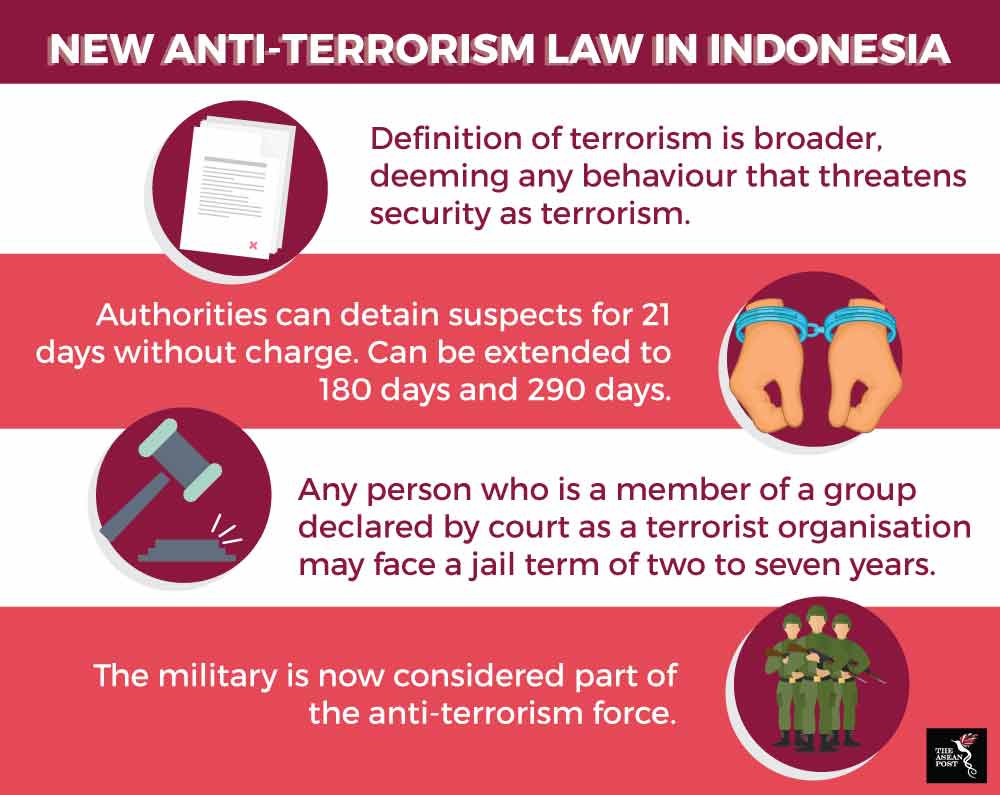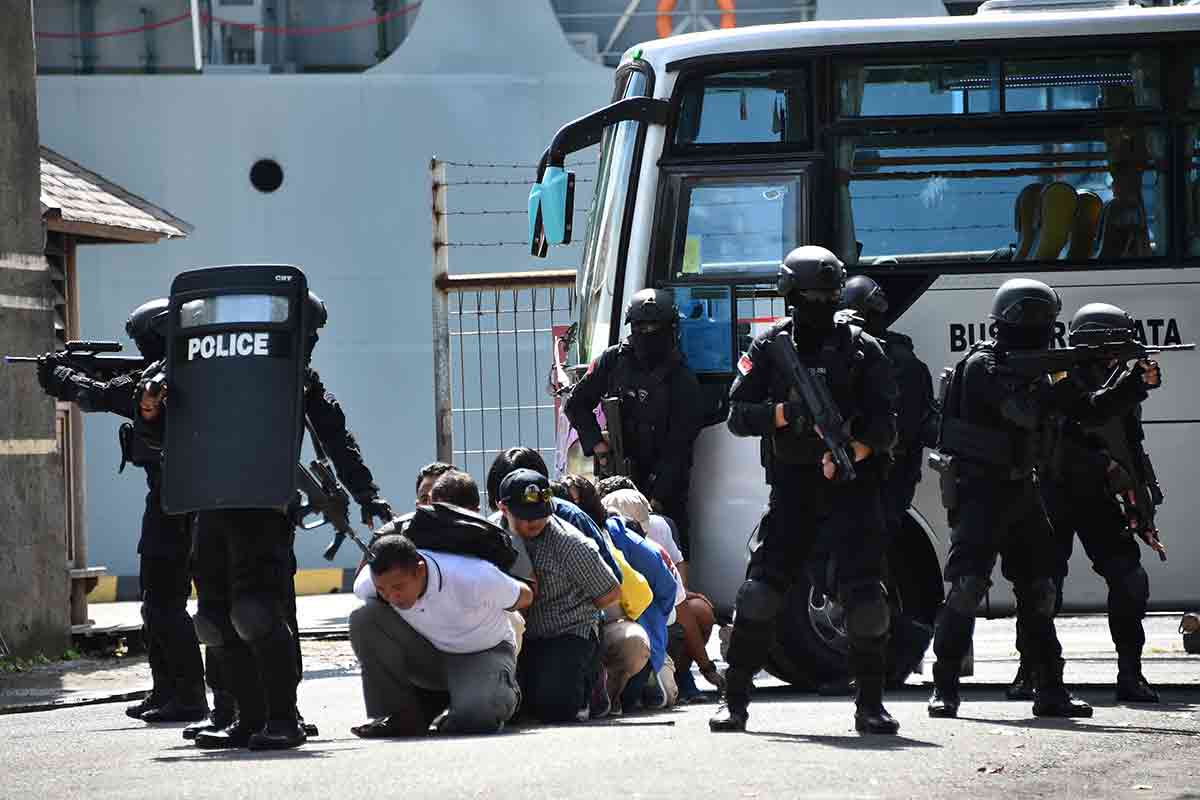Indonesia was swept by a wave of terror attacks in May. Within one week, the country witnessed three attacks – most of which occurred in Indonesia’s second largest city, Surabaya. On 13 May, a family of suicide bombers attacked three churches in Central Surabaya. The incident was followed by another bombing in Sidoardjo.
Then on 14 May, another family of terrorists attacked the police headquarters in the same city, resulting in at least four police officers and six local residents being injured. This latest spate of terrorist attacks is the deadliest the country has seen since the 2005 Bali bombings, which killed 23 people.
The attacks were chilling for a number of reasons. Firstly, the terrorists targeted places of worship, something that the country has not seen since the terrorist attacks carried out by Jemaah Islamiah (JI) in the early 2000s. On Christmas Eve 2000, JI carried out four bombings at four different churches in Indonesia. Similar to JI, the church bombings in Indonesia in May were also carried out on a Sunday, a day of worship and rest for Christians.
Secondly and probably the most concerning fact of the attacks was that they were carried out by families. In the case of the church bombings, the father of the family drove a bomb-laden car into the Pentecostal Church Central Surabaya, while the mother and her two daughters, aged 9 and 12, blew themselves up at the Indonesian Christian Church. At the same time, the sons, aged 16 and 18, rode a motorcycle filled with explosives into the Saint Mary Immaculate Catholic Church.
The police station attacks were carried out by a family of five, who rode two motorbikes into a checkpoint near the station and detonated explosives there.
According to terrorism experts, these families utilised their children as cover, so as to not arouse suspicions when carrying out their attacks. With terrorists smartening up, the Indonesian government quickly passed anti-terrorism laws which increase the powers of the state and the military.

Source: Undang-undang Antiterorisme
The draft of the new anti-terrorism law was initially submitted in 2016 by the Jokowi administration. However, parliament was reluctant to pass the bill at the time as it would expand military power and there were lamentations that it would infringe on human rights. However, after the Surabaya bombings, the bill was passed unanimously.
The new anti-terrorism law broadens the definition of terrorism, deeming any behaviour that threatens security as an act of terrorism. This law also gives greater power to authorities, giving them the right to detain any person suspected of planning an attack for 21 days without charging them. This detention period can be extended to 180 days and 290 days should the police find any related evidence.
The law also includes the military as part of the country’s anti-terrorism force. However, their involvement is limited as they are allowed to participate in anti-terrorist activities only when requested to do so by the police force and with the approval of the President.
Some observers fear that this will lead to human rights abuses. There are also fears that military rule could return, similar to the days of former President Suharto. Furthermore, some quarters have even raised doubts whether this law would be effective in tackling terrorism.
In Indonesia, most terrorist acts are carried out by radical Islamists, driven by their ideology. Even with more manpower and authority than ever, there is only so much that Indonesia’s forces can do to stop terrorism.
According to Leo Suryadinata, a Visiting Senior Fellow at ISEAS-Yusof Ishak Institute, the best way to eliminate terrorism is to combat the growth of radical Islam. Over the past few years, fundamentalist Islamic ideology has grown in Indonesia and some are attributing that to the increase of terrorist attacks there.
The best way to combat radicalism is to address its root causes. Experts have called for the Indonesian education system to be reformed, with an emphasis on inclusion. One suggestion is to include multi-faith teaching in schools, so that children will be exposed to diverse religious perspectives.
“Efforts to stop the spread of the ideology has to also be present elsewhere. The Indonesian government needs to collaborate with moderate Muslim organizations to stop the spread of Islamism, reform the prison system, and co-operate with foreign governments in their anti-terrorist efforts,” added Leo Suryadinata.
